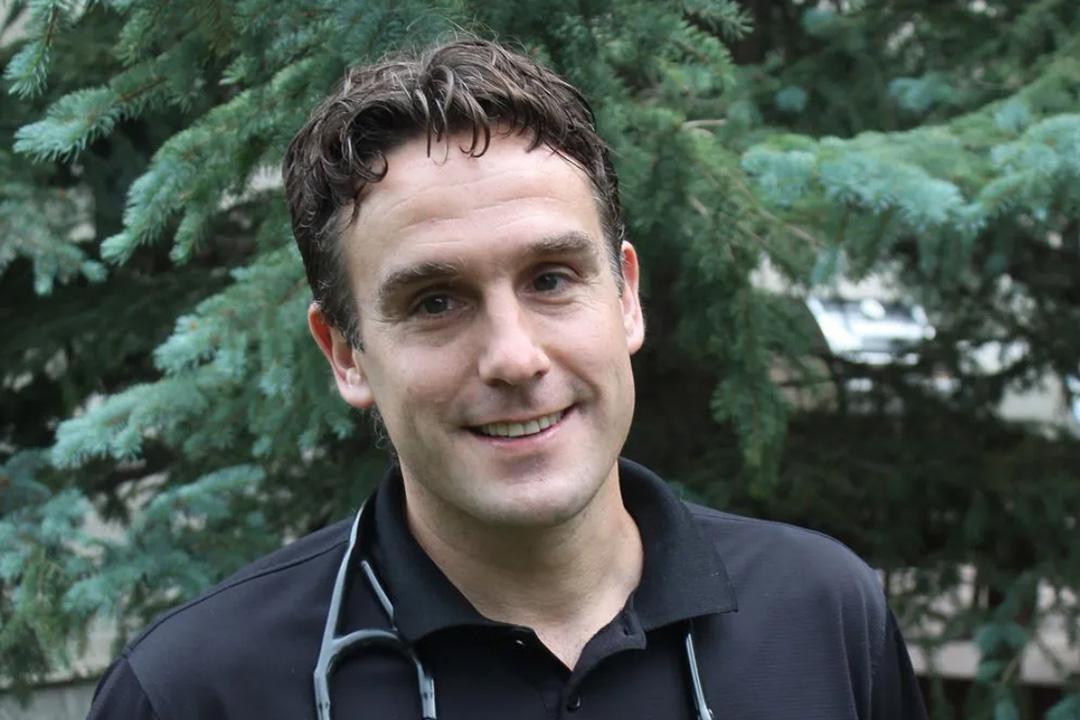
USask doctor recognized for collaborative methods
The PESTA award recognizes scholars who excel in research that engages with the community to address issues related to social, environmental and economic impacts.
By Matt Olson, Research Profile and ImpactDr. Stuart Skinner (MD), the section lead for infectious diseases in Regina with the Department of Medicine at USask, is one of the recipients of the 2024 Publicly Engaged Scholarship Team Award (PESTA).
The award is presented annually to recognize the outstanding collaborative efforts of USask faculty members, post-doctoral fellows, graduate students and/or community partners to create social impacts in the community – at the local, national or international level.
“This one means a lot, a tremendous amount, for so many reasons,” Skinner said. “This is a chance to reflect that we’re doing the right things, making a difference ... that this community-based work is being acknowledged and recognized is really important.”
Skinner’s work has connected him to rural and Indigenous communities near throughout Saskatchewan. Based in Regina, Skinner is the director of the Wellness Wheel Medical Clinic, a non-profit organization dedicated to working directly with Indigenous communities through a combination of Western medical practices and Indigenous traditional practices. A critical part of Skinner’s practice is the emphasis on meeting patients where they’re most comfortable, instead of forcing them to find their way into the city to receive his attention.
As Skinner sees it, the benefits of bringing care directly to his patients far outweigh the advantages of his patients travelling to see him.
“The benefit of working in partnership with the community ... community members bringing in their strengths with health practices, whether that be Elders with traditional medicines or the community itself in providing care to the patient, then we’re all working on the same team together and using all our strengths,” he said.
Through his practice, Skinner said he visits more than 20 different First Nations communities throughout Saskatchewan regularly to provide health care services. He pointed to the benefits of working directly with the community to find health care solutions for the people living there.
Skinner credits the nursing staff he works with and leaders in each community for taking the initiative with locally led programming to support health care services.
In addition to the Wellness Wheel Medical Clinic, Skinner has received grant funding from the Canadian Institutes of Health Research (CIHR) and Saskatchewan Health Research Foundation (SHRF) for initiatives in HIV prevention and care as well as a project aimed at working with people with addictions and bringing them into the health care system.
“The outcomes have been phenomenal,” he said. “It builds trust. People are a lot more comfortable when they’re in an environment they’re familiar with. So as a physician, the relationship and coming up with solutions is much, much easier.”
Skinner said while he will be recognized with the PESTA, it’s very much a team award. He lauded the care teams he’s worked with and community leaders for their care and commitment in these projects, as well as the mentorship he’s received from other health care professionals.
For Skinner, the reasoning for pursuing this kind of health care is simple: he does it because he loves it.
“The people I worked with at the health centres, the clinics, the Indigenous leaders, the community, it was such a delightful environment to work in,” he said. “The strengths they have, I get given 100 times more back than what I give.”
Together, we will undertake the research the world needs. We invite you to join by supporting critical research at USask.
Article re-posted on .
View original article.

